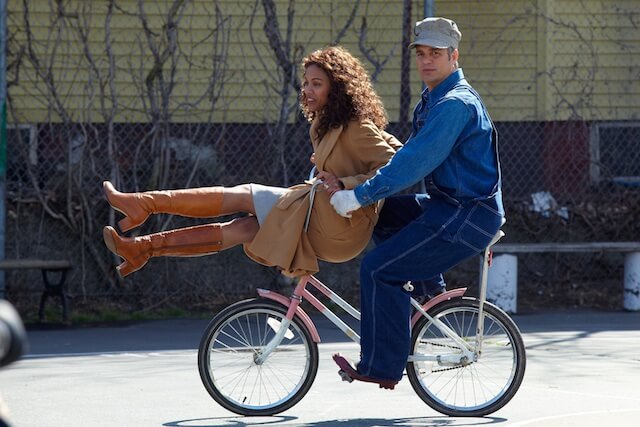‘Infinitely Polar Bear’ It probably doesn’t look it, but the annoying title of “Infinitely Polar Bear” secretly tells you how good it is. As it’s eventually explained, it comes from one of the film’s two young children, Faith (Ashley Aufderheide), learning that Cam, her father, played by Mark Ruffalo, has been diagnosed with bipolar disorder. What she hears is a variation on “polar bear.” It’s a sign that the film that tells her family’s story —based on the experiences of its writer-director, Maya Forbes —will deal in a goofy but no less strong, form of resilience, that it will make a bold act of not taking the horrible too seriously. This should be a grim tale; it could have also gone the other way into full-on, misjudged quirk. Instead it lies somewhere in between — a little too upbeat at times, but always perched over despair. The plot, and some of the events, is similar to “Daddy Longlegs,” Joshua and Bernie Safdie’s funny and anxious look at a perpetually disheveled and wildly irresponsible dad (Richard Bronston) looking after his two young sons. Here, dad has an excuse for his bad behavior, though he’s not nearly as reckless with his two daughters, Faith and Amelia (Imogene Wolodarsky). The story finds Cam having to care for them on his lonesome after mom (Zoe Saldana) goes off to school. Up to then he’s been “fun dad,” leaving the responsibilities to his increasingly disillusioned wife. Now he must acquit himself, in between serial bad decisions, like boozing when he shouldn’t be drinking at all and losing his stuff when pushed too far. As Ruffalo plays him, Cam is a big child himself, unable to control his emotions and most alert when he has an excuse to unleash his boyish exuberance. It might seem like movie mental illness; when the film starts he’s a full-on free-spirit in the vein of Jason Robards in “A Thousand Clowns,” celebrating being fired by loudly seizing the day. But Ruffalo stops well short of tics. He is simply, as Alvy Singer told Annie Hall, “polymorphously perverse,” reacting with great sensitivity to every interaction and sensation — a jumble of nerves that could be set off, for good or ill, by everything. At the same time Ruffalo reins him in just enough that his performance, and the film, doesn’t just become a silly lark with no consequences. At the same time still, it entertains the notion that living with an unhinged dad can be kind of fun, maybe even a lot of fun, and that kids are a lot more durable than we like to think. Forbes, whose previous credits range from “The Larry Sanders Show” to “Monsters and Aliens,” can be a bit too worried audiences will find this despairing. The period songs (the setting is the ’70s) are too safe, not really fitting with the punchy, often rough aesthetics. But it feels lived-in and lived, moreso than most autobiographical works. And best of all, it feels levelheaded, even when — actually especially when —an upset Cam is giving his two young daughters the double middle finger. Follow Matt Prigge on Twitter @mattprigge
Director: Maya Forbes
Stars: Mark Ruffalo, Zoe Saldana
Rating: R
3 (out of 5) Globes
‘Infinitely Polar Bear’ is infinitely less annoying than its title

Sony Pictures Classics


















